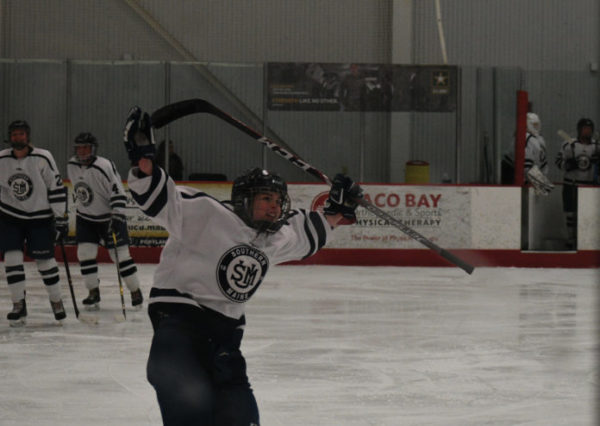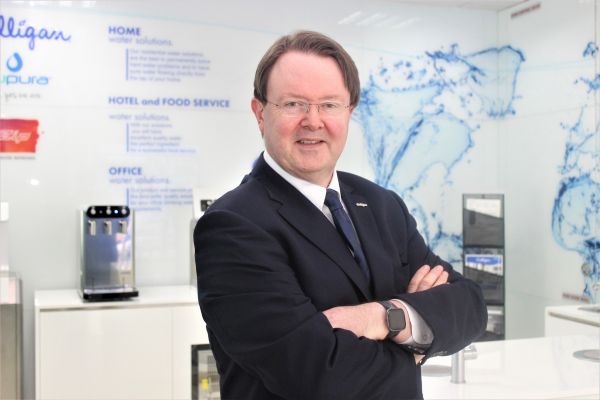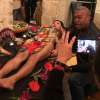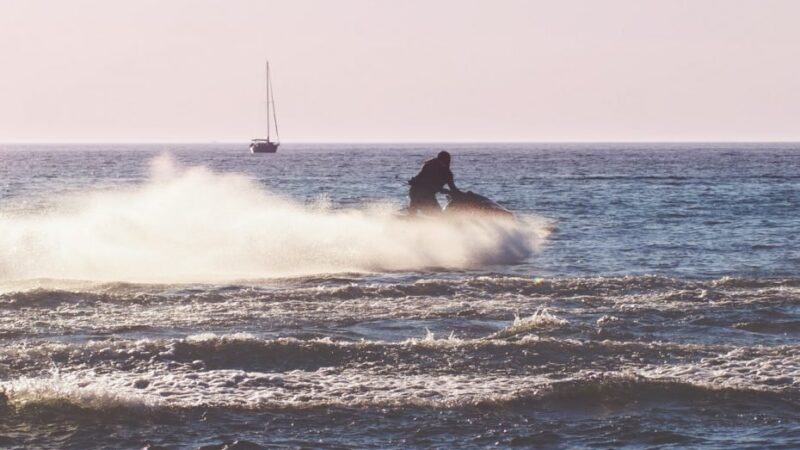By: Connor Blake, Staff Writer
Rylie Binette, a junior health sciences major out of Milan, New Hampshire, pushed the Women’s Ice Hockey team to greater lengths this year as they won their first playoff game in six years.
Over Binnette’s three years at USM, she has accumulated 35 career collegiate hockey points, scored 18 goals and assisted on 17. This puts her at the second-highest career point-getter on the current roster. Along with her success on the ice, she works hard in the classroom, as she is a two-time William B. Wise Scholar-Athlete recipient and she was recognized as the American Hockey Coaches Association Academic All-Star.
The Free Press sat down with Binette this week, to ask her some questions about hockey, academics and her other hobbies in life.
Q: When did you start playing hockey?
A: I believe that I was six years old when I began playing hockey and after fifteen years I am still in love with it.
Q: Why do you play Hockey?
A: I started playing hockey because my older brother attended hockey instructionals every Sunday morning when we were younger and since I wanted to be just like him, I began to play. Since the day my parents laced up my skates hockey has always been my favorite activity. Over the years I have made some of my best friends through playing hockey. Along with making friends, hockey has always fulfilled my competitive needs. Not only by competing against another team, but by allowing me to push myself to become better everyday. One more reason, although I could go on and on all day why I play hockey, is because it strengthens me as a person outside of the arena.
Q: What has this sport taught you that can be transferred to other areas of life?
A: Hockey has taught me how to be disciplined, committed, as well as to manage my time. These skills that were learned on the ice are transferred to my everyday life outside if the rink. To be the student that I am these skills are applied every day and I know will be applied in future occupations that I uphold.
Q: What is it like, having won a playoff game in a triple-overtime finish?
A: First of all, exhausting. On a more serious note though, it was amazing. With each minute that went by out of the 106 minutes that we played that night, we became more invested and even more emotionally attached. We were at the point where we had literally given the game everything we had and in the end, we walked away with the win. This game was almost equivalent to playing two playoff games in one night, but I don’t think any of us would change it because it made the win feel like a bigger accomplishment. We all worked our hardest that night and overall it was a team win, but thankfully Maddy (Young) stepped up and scored the winning goal, which was well deserved for her.
Q: How do you balance school with Hockey?
A: Honestly, I manage school better with hockey than without it. Hockey keeps my schedule structured and during the season when I am not playing hockey or in class I am usually doing homework. During the hockey season I try to limit electronic use, which helps me focus on the two important things I am at college for: school and hockey. Another strategy I use to make sure all of my homework gets done is by using a homework todo list so I can visualize what needs to be done and check off tasks as I complete them.
Q: What piece of advice would you give to other student-athletes who are looking for success?
A: If I had to give a piece of advice to other student-athletes striving to be successful I would say never stop working. Whether it be related to school or your sport, never quit and never settle. Once you give up it allows your opponents to become stronger than you.
Q: How have your coaches helped you on and off the ice?
A: I have had numerous coaches over the years of playing hockey. Some have been excellent by teaching me new skills as a player and a teammate, while other coaches have been toxic to my career as a hockey player. Although I have had numerous coaches who have all shaped who I am today I would say that my coach now is the most important to my college success. On the ice, I am pushed to be competitive and was taught that it doesn’t matter how good you are if you don’t put in the effort. Effort gets you playtime and talent is just a nice bonus. One valuable lesson off the ice that I was taught is if I am not happy about something it isn’t going to help to just feel sorry for myself; Instead, confront the problem and then prove the disbelievers wrong by working harder.
Q: What do you do outside of Hockey?
A: When I am not playing hockey, I love outdoor activities such as fishing, wakeboarding and dirt-biking. For work during the school year I am employed through Compass Behavioral Health as a Behavioral Health Professional. During the summer I go back home to New Hampshire and work at my mom’s restaurant and my dad’s electrical and general contracting company.
Q: What are you planning to do after school?
A: I was just recently accepted into the Masters Accelerated Occupational Therapy Program at USM so next year will be my first year in this program. This program allows me to get my occupational therapy master’s degree in five years, instead of the average of six. With that being said, I plan on being an occupational therapist after I get out of school, preferably with pediatrics. Other than that I don’t have any set plans.
Q: Who is your inspiration in life?
A: My mother is my life inspiration and role model. She has been to almost every game in my sports career. For example, this past hockey season she attended 26 of the games out of our 27 game season. The one game she didn’t attend was Johnson and Wales, which would’ve been a five hour trip for her (one way). Not only has she taught me support goes a long way, but she has also demonstrated that hard work and consistency get you what you want in life. My mother is also my role model because she adapts to challenges and then overcomes them. I hope that one day I can be the kind of person and the mother that she is.
Q: If I were to ask a teammate “ Tell me about Rylie” what would they say?
A: I think that they would say I am a hard worker, smart, funny, and I hope that they would say I am a good teammate.
Q: When you look back at USM what will you remember?
A: After I graduate from USM and look back I think my greatest memories will be the thrill of playing hockey at a competitive level, teammates that have turned into family, and the tiredness, yet enjoyableness of our 6:45 a.m. practices that we attend all season long.







Recent Comments